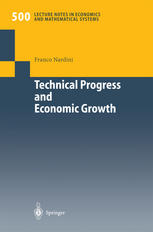

Most ebook files are in PDF format, so you can easily read them using various software such as Foxit Reader or directly on the Google Chrome browser.
Some ebook files are released by publishers in other formats such as .awz, .mobi, .epub, .fb2, etc. You may need to install specific software to read these formats on mobile/PC, such as Calibre.
Please read the tutorial at this link: https://ebookbell.com/faq
We offer FREE conversion to the popular formats you request; however, this may take some time. Therefore, right after payment, please email us, and we will try to provide the service as quickly as possible.
For some exceptional file formats or broken links (if any), please refrain from opening any disputes. Instead, email us first, and we will try to assist within a maximum of 6 hours.
EbookBell Team

4.4
82 reviewsIn this book we intend to discuss economic fluctuations and growth and possible stabilizing fiscal policies. Since these topics are major preoccupa tions of economic theorists and have been extensively discussed since the classics, one may wonder why another book on these subjects. A possible defense is that we are going to do so in the framework of a two-sector model where the main featureS of each sector depend on the characteristics of the goods produced by the sector itself. The conventional wisdom suggests that the problem of (dis )aggregation in growth and business cycle theory is basically a quantitative one: the model should consider as many sectors, goods, and agents as necessary to provide a sufficiently rich picture, the upper bound obviously resulting from the tractability of the problem. In this attitude the same equilibrium (or diseqUilibrium) assumptions generally hold true throughout all sectors. Here we want to prove the relevance of an alternative approach: we look at the qualitative differences across sectors and at the peculiarities of each market as at the determinants of the economic dynamics. This tradition goes back over one hundred years to Tugan-Baranowkj and has been de veloped by Aftalion, Fanno, Spiethof, and Lowe, but has never been sys tematically formalized.